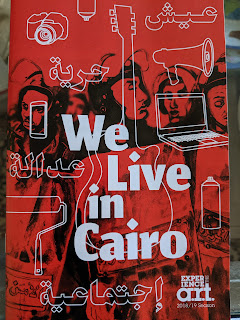Higher incidence of diphtheria among Muslims in Hyderabad: study
A study of diphtheria cases between 2003 and 2006 in the city of Hyderabad found that rate of the disease is higher among children of 5-19 years of age, women, and Muslims than other social groups.
The study conducted by National Institute of Epidemiology, Chennai is published in July 2008 issue of peer reviewed journal Emerging Infectious Diseases. Published since 1995, journal Emerging Infectious Diseases is published by Centers for Disease Control and Prevention (CDC) of the United States.
In 2005, 71% of the 4,161 Indian cases of diphtheria came from Andhra Pradesh. The study found that between 2003 and 2006 there were 2,685 patients admitted to Hyderabad hospitals for diphtheria cases. The fatality rate was low at 1.2% but the study saw increase in the rate of incidence over the years.
Diptheria cases were lowest among infants but increased with age and reached a maximum among children of 10-14 years of age. Study found that 70% of 2,685 patients were Muslims. This was found to be 3 times higher than other communities. Incidence of diphtheria was higher in predominantly Muslim populated areas of the city.
Diphtheria is a contagious disease affecting upper respiratory tract and nervous system. It along with pertussis and tetanus is part of DPT vaccine that comes under Universal Immunization Programme (UIP) of India. Free doses are given to children to protect them from these diseases. UIP offers 2 booster doses at 18 months and between 54 and 72 months of age of the child. 3 doses of vaccine are required to develop the protective levels of antitoxin required to fight the disease. The study in question found that efficacy levels increase with additional doses. Vaccine efficacy was 49% for 3 doses, 65% for 4 doses but jumped significantly to 91% for children who had 5 doses of the vaccine.
One reason for higher diphtheria rate among Muslims is lower coverage for later doses. Rate of coverage for non-Muslim and Muslim children under primary vaccination was same but it dropped significantly for the fourth and the fifth dose. Since children are getting the primary dose equally, it indicates that parents and community leaders are not opposed to the idea of vaccinations but as children age proper health care needs are not met.
Study also found that in most cases, immunization records were not available and health professional relied on mother's memory. This could be the reason for children not getting later doses of important immunization vaccines.
Study authors recommended improving the coverage of booster dose in areas of Hyderabad where majority of diphtheria cases have been reported. They also recommend education and awareness campaign focusing on the Muslim community.
The research paper is authored by Sailaja Bitragunta, Manoj V. Murhekar, Yvan J. Hutin, and Mohan D. Gupte of National Institute of Epidemiology, Chennai and Padmanabha P. Penumur of Fever Hospital, Hyderabad, India.
--Published TwoCircles.net : 16 January 2009
The study conducted by National Institute of Epidemiology, Chennai is published in July 2008 issue of peer reviewed journal Emerging Infectious Diseases. Published since 1995, journal Emerging Infectious Diseases is published by Centers for Disease Control and Prevention (CDC) of the United States.
In 2005, 71% of the 4,161 Indian cases of diphtheria came from Andhra Pradesh. The study found that between 2003 and 2006 there were 2,685 patients admitted to Hyderabad hospitals for diphtheria cases. The fatality rate was low at 1.2% but the study saw increase in the rate of incidence over the years.
Diptheria cases were lowest among infants but increased with age and reached a maximum among children of 10-14 years of age. Study found that 70% of 2,685 patients were Muslims. This was found to be 3 times higher than other communities. Incidence of diphtheria was higher in predominantly Muslim populated areas of the city.
Diphtheria is a contagious disease affecting upper respiratory tract and nervous system. It along with pertussis and tetanus is part of DPT vaccine that comes under Universal Immunization Programme (UIP) of India. Free doses are given to children to protect them from these diseases. UIP offers 2 booster doses at 18 months and between 54 and 72 months of age of the child. 3 doses of vaccine are required to develop the protective levels of antitoxin required to fight the disease. The study in question found that efficacy levels increase with additional doses. Vaccine efficacy was 49% for 3 doses, 65% for 4 doses but jumped significantly to 91% for children who had 5 doses of the vaccine.
One reason for higher diphtheria rate among Muslims is lower coverage for later doses. Rate of coverage for non-Muslim and Muslim children under primary vaccination was same but it dropped significantly for the fourth and the fifth dose. Since children are getting the primary dose equally, it indicates that parents and community leaders are not opposed to the idea of vaccinations but as children age proper health care needs are not met.
Study also found that in most cases, immunization records were not available and health professional relied on mother's memory. This could be the reason for children not getting later doses of important immunization vaccines.
Study authors recommended improving the coverage of booster dose in areas of Hyderabad where majority of diphtheria cases have been reported. They also recommend education and awareness campaign focusing on the Muslim community.
The research paper is authored by Sailaja Bitragunta, Manoj V. Murhekar, Yvan J. Hutin, and Mohan D. Gupte of National Institute of Epidemiology, Chennai and Padmanabha P. Penumur of Fever Hospital, Hyderabad, India.
--Published TwoCircles.net : 16 January 2009

Comments